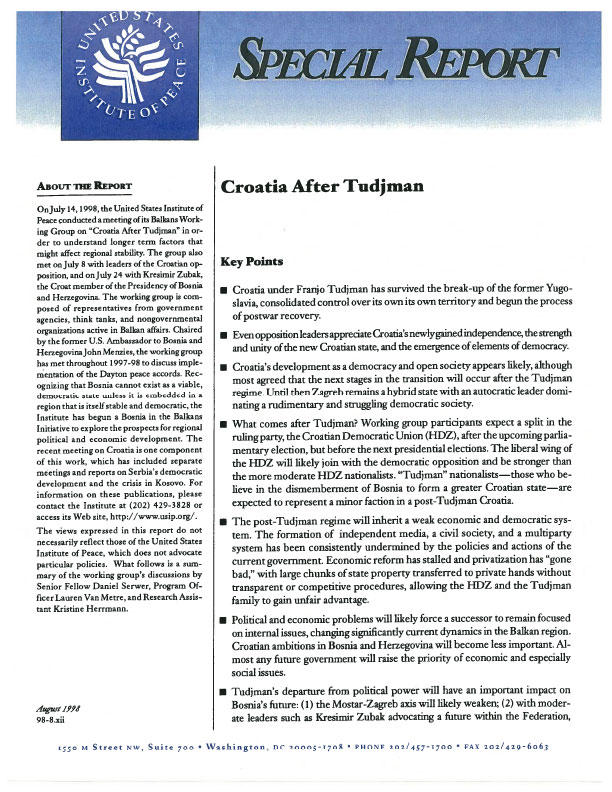Recognizing that Bosnia cannot exist as a viable, democratic state unless it is embedded in a region that is itself stable and democratic, the Institute has begun a Bosnia in the Balkans Initiative to explore the prospects for regional political and economic development. The Balkans Working Group on "Croatia After Tudjman" met in order to understand longer term factors that might affect regional stability. The recent meeting on Croatia is one component of this work, which has included separate meetings and reports on Serbia's democratic development and the crisis in Kosovo.

About the Report
On July 14, 1998, the United States Institute of Peace conducted a meeting of its Balkans Working Group on "Croatia After Tudjman" in order to understand longer term factors that might affect regional stability. The group also met on July 8 with leaders of the Croatian opposition, and on July 24 with Kresimir Zubak, the Croat member of the Presidency of Bosnia and Herzegovina. The working group is composed of representatives from government agencies, think tanks, and nongovernmental organizations active in Balkan affairs. Chaired by the former U.S. Ambassador to Bosnia and Herzegovina John Menzies, the working group has met throughout 1997-98 to discuss implementation of the Dayton peace accords. Recognizing that Bosnia cannot exist as a viable, democratic state unless it is embedded in a region that is itself stable and democratic, the Institute has begun a Bosnia in the Balkans Initiative to explore the prospects for regional political and economic development. The recent meeting on Croatia is one component of this work, which has included separate meetings and reports on Serbia's democratic development and the crisis in Kosovo.
The views expressed in this report do not necessarily reflect those of the United States Institute of Peace, which does not advocate particular policies.